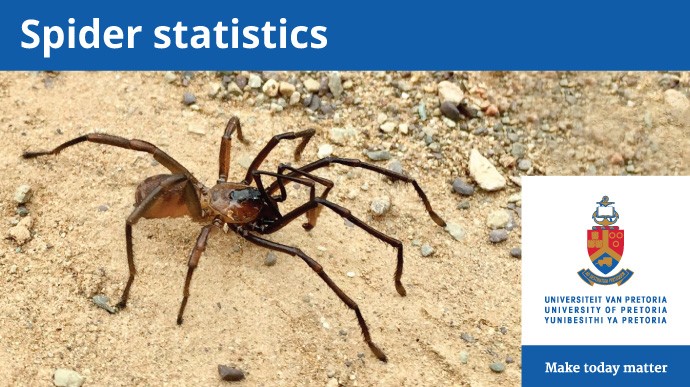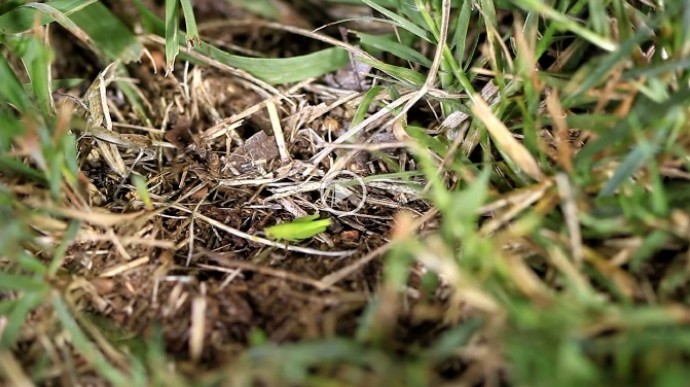Have you have ever thought about why people prefer one food to another? The obvious answer is the taste, but, if you think about it, the texture, sound, smell and appearance of food also play a fundamental role in our food choices. Together with taste, these four elements are known as the sensory properties of food.
Prof Riëtte de Kock, of the Department of Food Science and the Institute of Food, Nutrition and Well-being (IFNuW), has been involved in Sensory Food Science research since 1990. Over the years, Prof De Kock’s research has focussed on the food security issues facing sub-Saharan Africa, by applying sensory science to indigenous and locally relevant food sources, including cereals, legumes and animal types that are adapted to the African climate and that are potentially nutritious and affordable.
One nutritional challenge facing developing Africa is urbanisation. On the one hand, this results in an affluent urban lifestyle, where people move away from traditional staples to variants that offer a more satisfying sensory experience. Unfortunately, such dietary changes have the tendency to cause lifestyle diseases, ranging from diabetes and cardiovascular disease to hypertension and obesity. On the other side of the spectrum, many poor urban households’ diets consist mainly of cereal-based porridges, which lack proteins and essential micronutrients.
Prof De Kock’s team has responded by developing modern foods based on traditional African crops that are highly nutritious and locally available. A challenge the team has faced, however, is that, compared to modern alternatives, traditional African food products generally do not offer the same satisfactory sensory experience as modern foods do. African green leafy vegetables, for example, are rich in vitamins and minerals essential for growth and development, but often taste bitter. A well-growing food staple such as wholegrain sorghum is also nutritious but, because it tends to have a strong flavour and gritty texture, it is often substituted with more refined alternatives. Unfortunately, research shows that if food is not satisfactory in terms of its sensory properties, it will not be consumed, no matter how nutritionally beneficial it is. Food products therefore need to be not only adequately nutritious, but also appealing and appetising. To improve the sensory experiences of foods from these traditional crops, De Kock and her colleagues are using modern food technologies, such as extrusion cooking and micronisation, to develop food products based on traditional foods but that cater to modern tastes. For example, the team has developed new, composited cereal-legume products that have a higher protein content, such as porridges and snacks.
However, as De Kock notes, ‘Very little good scientific documentation of the sense properties of some of the traditional African food products is available.’ So, in order to create modern versions of these traditional foods, researchers have to spend time in rural communities accessing traditional recipes from the ‘gogos’ of the communities. The team also utilises facilities at UP’s Mamelodi Campus to reach a wider group of target consumers.
The UP team’s work has a multi-layered vision: first, it aims to improve the diets of African communities. Second, research focuses on developing ready-to-eat products and products that do not require much cooking time, so as to save the consumer time and the associated costs of high energy use. Furthermore, by developing modern foods made from locally relevant ingredients, the demand for produce from small-scale farmers will increase, in turn empowering and benefitting the farmers as well. This research team is certainly finding viable solutions to both the food and poverty challenges facing Africa.
De Kock and her sensory evaluation research team also assist leading food companies in the development of food products. A special laboratory, where a group of trained and experienced sensory panellists evaluate food products using standardised procedures, is a key part of the research. The Sensory Research Division at UP conducts contract research for the food industry, consults, and develops and presents short courses as part of Business Enterprises at UP (Pty Ltd.) (BE@UP).
Prof De Kock has a C2 NRF rating, with several postgraduate students under her supervision. She is also the author of numerous publications in international peer-reviewed journals, serves as the current Research Chair of the European Sensory Network (www.esn-network.com), and is a member of several internationally recognised bodies.
Prof Riëtte de Kock
May 29, 2015

 Story
Story
Nine new trapdoor spider species have been discovered in the Great Karoo by researchers at the University of Pretoria’s (UP) Department of Zoology and Entomology, and the Agricultural Research Council (ARC).
 Infographic
Infographic
Trapdoor spiders hide in underground burrows that are covered with a cork-like lid made of soil, silk and plants. Learn more about trapdoor spiders with this infographic.
 Video
Video
Watch carefully to see how a trapdoor spider catches its prey through its trapdoor.
Copyright © University of Pretoria 2024. All rights reserved.
Get Social With Us
Download the UP Mobile App